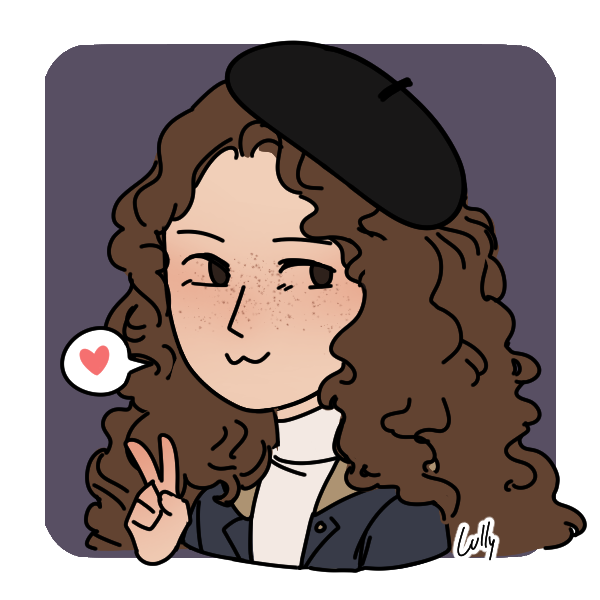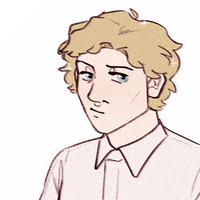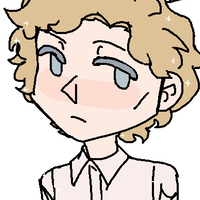Siegfried
ObywatelKajen
- Created
- 1 year, 4 months ago
- Creator
- ObywatelKajen
- Favorites
- 1
Profile

About
Altruistic • Lying • Mysterious • Picky
Siegfried (full name: Siegfried Degen) plays an important role in the story, treated a bit like a tritagonist of The Zillmanns’ Treasure. He was murdered in Nikiszowiec in 1931 and has been wandering through the worlds of living and dead since. Because he’s connected to the mythical treasure of the Zillmanns, Lidzia and Francik are trying to help him rest in peace almost after 100 years.
Siegfried lived in Katowice during the interwar period, and he worked in the editorial board of the local newspaper. He was gay and despite the habitual homophobia, he had a partner – Herbert.
Likes
- Art
- Rainy days
- Being alone
- Reading books & newspaper
Dislikes
- Conflicts
- Taxidermy
- Small spaces
- The smell of cigarettes & smokers
Backstory
Siegfried Degen was born on September 5th, 1908, to Otton and Else Degen as their middle son. His family comes from the city of Katowice, which was under the Prussian rule back then. His father worked as a miner in the Ferdinandgrube (later KWK “Katowice”); his mother took care of their house, Siegfried, and his siblings. Young Siegfried was close with his older sister, Erika, even if all of the Degen children were always close-knit – they all cared for and supported each other. The boy was calm and quiet, didn’t really like spending time with his peers, instead preferring the company of older people. His parents always said how mature for his age he was. As a child, he often had nightmares about death (both about his death and the death of his beloved ones), but never told his family. When Siegfried was 6, World War 1 broke out and his father and the eldest brother were drafted to the army. He doesn’t remember that time much (especially now since he’s dead), but he faintly remembers how his older sisters helped their mother and that she worked somewhere. Both of his family members managed to survive and came back home.
When Siegfried was eleven, the first Silesian Uprising broke out. While his father didn’t pick any side during the fights, three of his brothers decided to fight – one of them fought for Poland, which lead to a conflict within his family. Siegfried, as a kid, didn’t really understand the hassle, even if he knew basic history of Silesia and had friends in school who were Polish-speaking Silesians – he was just young and didn’t care for the politics.
Most of the Degen family voted for Germany in the plebiscite in 1921. However, even after some part of Upper Silesia – including Katowice – joined the Polish territories, Siegfried and his family stayed in the city. At the time, he was 14. They all had to get accustomed to being part of a different country.
Despite his parents’ wishes, Siegfried didn’t want to become a miner like his father and brothers. This led to yet another conflict in the family, this time between him and his parents – especially his father – who tried to force his beliefs onto Siegfried. That’s why he moved out of the house as fast as he could, as the young man couldn’t stand arguing with his parents almost every day. Another bone of contention was Siegfried’s sexuality – he was gay, and while he didn’t told his parents directly, he had no interest in looking for a wife and they were displeased.
He didn’t keep in touch with his family, except for Erika, who always supported him and understood why Siegfried didn’t want to work as a miner. He started working in the editorial board of the local newspaper and lived on his own in an apartment close to market square of Katowice. His financial situation was bad, but he still managed to live.
At the age of 22, he met a man named Herbert. He was like a catalyst for him. They worked in the same editorial office. They quickly found a common ground, despite Herbert being much more outgoing than him and sometimes joking and teasing Siegfried. They ended up as a couple – for Siegfried, it was his first serious relationship. They were together for a year.
One frosty morning in December 1931, Siegfried went to Nikiszowiec. There, in one of the lanes, he was attacked by someone and killed, stabbed to death. His body was found shortly after.
Yet, Siegfried’s soul couldn’t rest. It was sealed on the attic of one familok in Nikiszowiec, until Lidzia and Francik found him almost 100 years later. At this point, Siegfried doesn’t really remember faces or events from the past...
Personality
Siegfried’s chief quality is selflessness – he helps others just because he wants, he doesn’t expect plaudit or attention for doing so. He thinks every person with any dignity would do the same. Siegfried is ready to sacrifice himself for the wellbeing of other people, which he once did… It was Lidzia and Francik who offered him help for leading them to the Zillmanns’ treasure. Despite that, even when he was alive, Siegfried had a problem with lying often. It’s often about small things – such as what he ate for breakfast – which people will often ignore, but sometimes he’d lie about his age or even how he died.
He’s a very mysterious person, and despite Francik and Lidzia’s efforts, he doesn’t really want to talk with them about his past or why was he killed; just like he doesn’t want to tell them how exactly he’s linked to the mystical treasure they’re looking for. The man is picky. Not always, but he’s often frowning or complains when Lidzia and Francik drag him into any adventure.
Trivia
• While Siegfried's mother language is German, he knows Polish on a communicative level.
• He is claustrophobic.
• He loved hiking in the mountains when he was still alive.
• Only Lidzia and Francik are able to see him fully (they can't explain themselves why), but other people can feel his presence – e.g. the room temperature is colder when he's in it.
• He's scared of taxidermied animals.
• He once visited Prague.
• Besides his older sister, he didn't keep in touch with his family.
• He knows a bit of Czech.
• Allergic to cats.
• Can dissapear if he wants to.
• His mother's family comes from Breslau/Wrocław.
• Siegfried loves big sweaters and vests.
• Lidzia often calls him "Zyga", a dimunitive version of his name in Polish.
Relationships

Lidzia
Because Siegfried is linked to the mythical treasure of the Zillmanns and because of their good nature, Lidzia and Francik want to help him. However, Lidzia doesn’t trust the ghost too much.

Francik
Because Siegfried is linked to the mythical treasure of the Zillmanns and because of their good nature, Lidzia and Francik want to help him. Unlike Lidzia, Francik trusts Siegfried endlessly.

Erika
Erika was Siegfried’s older sister. She had a strong bond with her brother and she was the only member of their family Siegfried kept in touch with. Erika lived in Bytom with her husband, but she often wrote to Siegfried. They sometimes met in person in cafés.

Herbert
Herbert used to be Siegfried’s boyfriend. They had to keep their relationship in secret, as homosexuality was illegal and frowned upon by people. Herbert was his first serious partner, and they loved each other, even if Herbert teased him from time to time.
HTML by Pinky
Marlene Dietrich
Vor der Kaserne
Vor dem großen Tor
Steht 'ne Laterne
Tund steht sie noch davor
Will Glahé
O mein Papa
War eine große Kinstler
Hoch auf die Seil
Wie war er herrlich anzuschau'n!
Lilian Harvey, Willy Fritsch
Ich weiß, was ich brauch'
Und du weißt es auch
Das ist so, das muss so sein
Du bist was für mich
Ludwig Schmidseder






